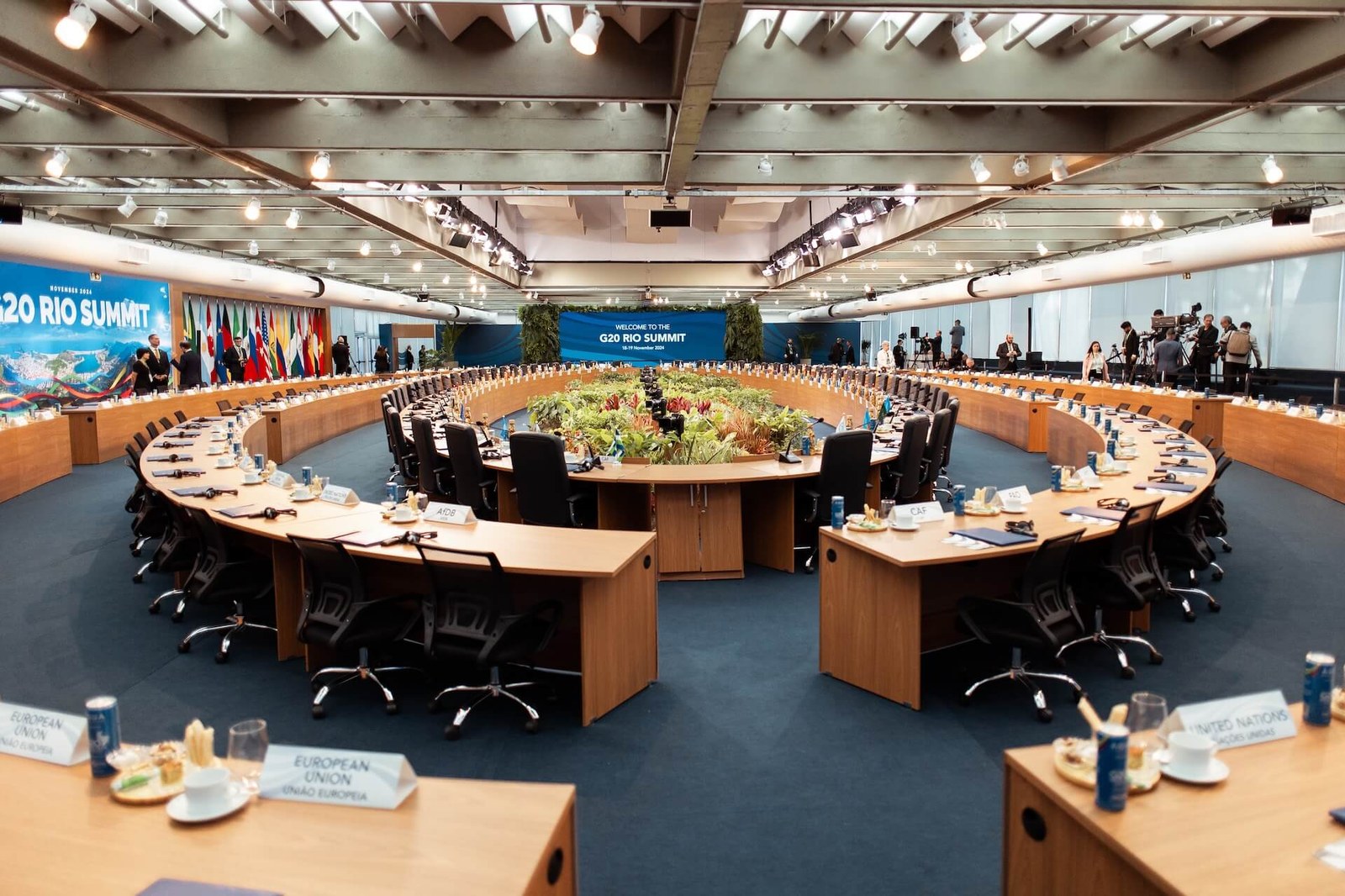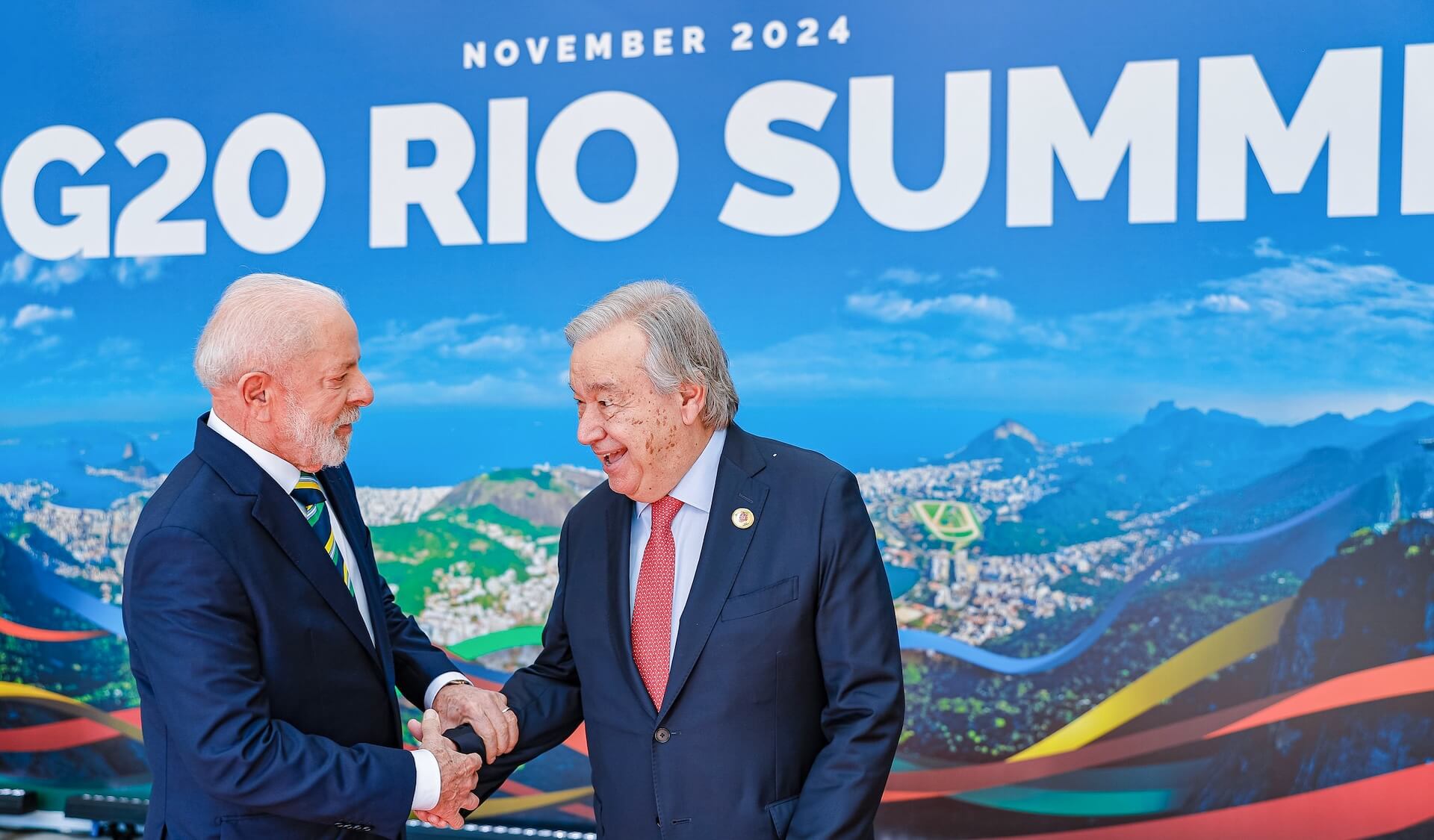“The omission of the Security Council threatens international peace,” says Lula at the G20
Global governance reform is among the three pillars established by Brasil's G20 presidency; world leaders discussed the topic on the afternoon of the first day of the Summit, and it may be one of the suggestions in the outcome document.

The urgency of global governance reform was one of the axes of President Luiz Inácio Lula da Silva's speech on Monday 18, the first day of the G20 Summit. In practice, this means giving more space to developing countries in the decision-making bodies of international policy. President Lula once again demanded, for example, changes in the UN Security Council: “Neoliberal globalization has failed. The inaction of the Security Council has become a threat to international peace and security,” said Lula.
In addition to changes in the UN, the global governance reform would aim to change the composition and functioning of other international organizations, such as the International Monetary Fund and the World Bank. Other G20 working groups have already been discussing this topic.
A day before Lula's speech, United Nations Secretary-General António Guterres highlighted the need to make more room for other countries at the UN: “The Security Council corresponds to the world of 1945.” Guterres recalled that the Council does not count on the participation of African or Latin American countries: “The Security Council does not correspond to today's world and has shown great ineffectiveness because of geopolitical divisions.”
The understanding of many members of the G20, Brasil among them, is that there is a concentration of power in the Security Council that no longer reflects current geopolitics and is not efficient in fighting and ending wars. One of the proposals is to increase the number of permanent and rotating members, which today are 5 and 10, respectively. This reformulation should ensure the participation of Global South countries in the group.
The Global South is composed of developing countries - and the concept, more than geographical, is political, being related to the socioeconomic context of these countries. All of Latin America, the entire African continent, and most Asian countries make up this bloc.

In the current configuration of the UN Security Council, any of the 5 permanent members (Russia, the United States, the United Kingdom, China, and France) can vote against the agenda established at the meeting and it will be immediately discarded, even if it reaches a majority of general votes. As happened on October 12, 2022, when Russia voted against the resolution condemning the annexation of Ukrainian territories. As a permanent member, the country's vote prevailed over those of 143 others that agreed with the text.
The debate about the representation of the United Nations is not recent. Brasil, Germany, Japan, and India signed a manifesto in favor of increasing the number of member countries in the UN Security Council. The discussion was also present in the countries during the last edition of the Dakar International Forum on Peace and Security in Africa, in November 2023, composed of 41 nations.
In the preparatory meetings for the G20, the Forum's engagement groups also called, in their Communiqués, for an expansion of global governance reform. The T20, a group for researchers, and the Y20, a group for young people from the G20, are examples of groups that discussed the topic. At the summit, President Lula stated how the lack of effective representation of developing countries contributes to blocking issues that are essential for these countries. “There is an urgent need to review financial rules and policies that disproportionately affect developing countries,” he said.
In practice, the discussion of bringing the Global South into UN-related governance stems from the criticism of these countries that their populations and contexts are not effectively represented by the "North" countries – the developed nations. Despite this, they are not part of some UN Councils, such as the Security Council, which is restricted to 5 countries with veto power over any decision. “There is no African country, there is no Latin American country, and therefore the Security Council does not correspond to today's world and has shown great ineffectiveness because of geopolitical divisions.”
By Everton Victor and Julia Lima. Content originally published by the Scientific News Agency of the Rio de Janeiro State University (Agenc).
*Translated by PGET-UFSC